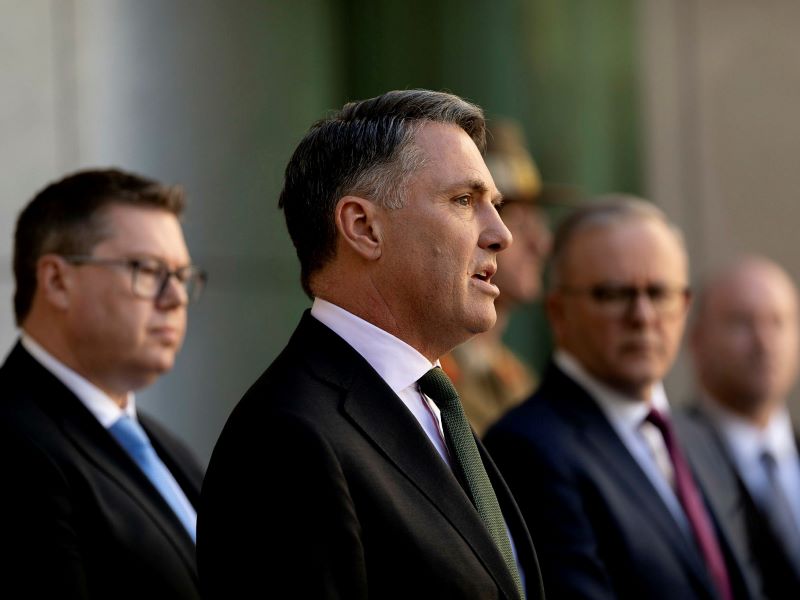Two former bureaucrats, including an ex-competition watchdog boss, will lead an independent review of Australian export control laws that will contemplate the need for greater freedoms to share technology overseas.
The review – only the second since the laws were introduced in 2012 – comes as a proposal to facilitate technology transfer between partners under the AUKUS security pact remains before the US Senate.
Defence minister Richard Marles announced the review of the Defence Trade Controls Act on Tuesday to ensure Australia’s export controls regime remains “fit-for-purpose in a rapidly changing strategic environment”.

The Defence Trade Controls Act regulates the supply of military and ‘dual-use’ technologies overseas, with Defence administering trade controls and export restrictions through the Defence and Strategic Goods List.
The list, which specifies the technology that requires a permit before being exported, brokered or published, contains exemptions for technology that is already ‘in the public domain’ or ‘basic scientific research’.
Under the legislation, a review of the regime is required every five years, with the last review, led by former Inspector-General of Intelligence and Security Vivienne Thom, making nine recommendations to address gaps in controls and regulatory overreach.
The 2018 review also stymied a Defence department attempt to gain sweeping controls over how all technology developed in Australia is sold or exported in a bid to address changes in the national security environment.
As part of the 2023 review, existing policies and regulations surrounding the protection of sensitive and critical technology and current safeguards for technology transfers will be examined, including in the context of other reforms to defence trade currently being considered.
“This review will ensure we balance the need for greater technology sharing between our international partners, the protection of our sensitive technologies, and our international obligations,” Mr Marles said.
The Albanese government has appointed former Defence deputy secretary and diplomat Peter Tesch and Professor Graeme Samuel, the former chair of the Australian Competition and Consumer Commission, to co-lead the review.
Mr Tesch, a former Ambassador to Russia and Germany, has spent 35 years in the public service, most recently as the deputy secretary of the Strategy, Policy and Industry Group in Defence, while Professor Graeme Samuel is a former Australian Competition and Consumer Commission chairman.
“Peter Tesch and Professor Graeme Samuel bring a wealth of experience and expertise and I can’t think of two more qualified people to lead this review,” the Defence minister said in a statement on Tuesday.
A public consultation will be undertaken for the review and Mr Tesch and Professor Samuel will also engage with key stakeholders across government, industry and academia, although the timing of when these will begin is unclear.
As the review gets underway, Washington continues to contemplate legislative changes that will “clear a path” for technology sharing and defence trade between the United States, the United Kingdom and Australia.
US defence technology export controls, namely the International Traffic in Arms Regulations (ITAR) regime, are considered a significant barrier to AUKUS, particularly efforts to develop emerging technologies under Pillar II.
But in return for changes, the Biden Administration has urged both Australia and the United Kingdom to develop reciprocal arrangements, including new controls, that prevent the AUKUS technology being transferred again.
Last month, US lawmakers approved draft legislation that incorporates reforms that make it easier to issue defence export exemptions to Australia and the UK “so long as the Secretary of State certifies that their export control regimes are comparable to that of the US”.
The 2018 review of the Defence Trade Controls Act found that the definitions of exemptions used in US and Australian export control systems could not be directly compared because of “inherent differences in the systems”.
A working group to inform proposals to reform the legislation was established by Defence in 2020, but legislative amendments that respond to the review are yet to progress, in part due to the pandemic.
Do you know more? Contact James Riley via Email.

